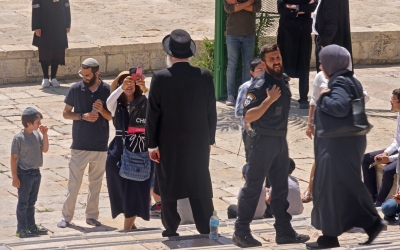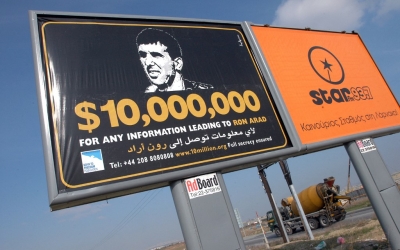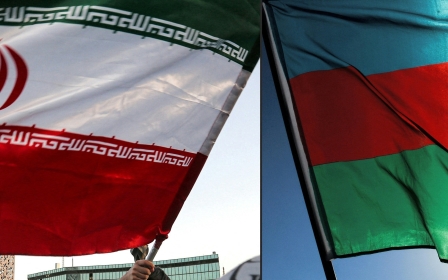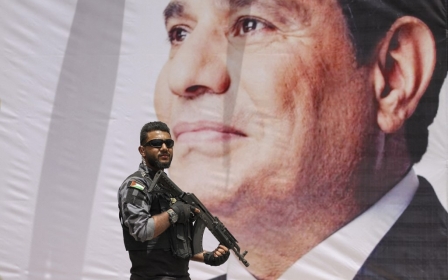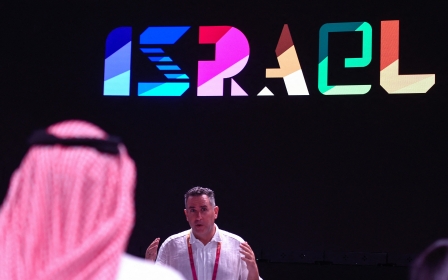Israeli press review: Police appeal decision allowing Jewish silent prayers at al-Aqsa complex
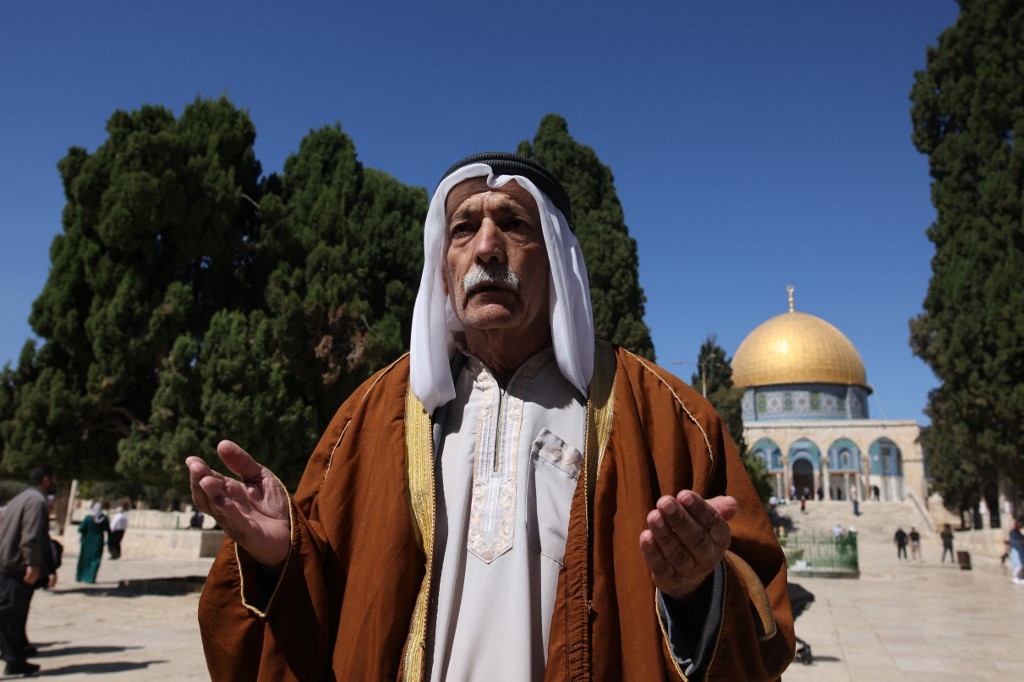
Israeli police appeal al-Aqsa ruling
Israel's police have appealed a controversial court decision made by Jerusalem's Magistrates Court on Wednesday, allowing silent Jewish prayer at al-Aqsa Mosque complex, one of Islam's holiest sites.
Omer Bar-Lev, the minister of public security, said the ruling is "a change in the existing status quo [that] will endanger public peace and may cause a flare-up," Israel Hayom, a newspaper close to opposition leader and former prime minister Benjamin Netanyahu, reported.
Bar-Lev said that "the State of Israel advocates freedom of worship and prayer for all".
New MEE newsletter: Jerusalem Dispatch
Sign up to get the latest insights and analysis on Israel-Palestine, alongside Turkey Unpacked and other MEE newsletters
On Wednesday, the Jerusalem Magistrates' Court ruled that Jewish prayer at al-Aqsa Mosque in occupied East Jerusalem "could not be considered a criminal act" if it was kept silent, as it would not break police instructions.
Bar-Lev said on Friday that he appealed the ruling.
Matan Peleg, the head of the right-wing group Im Tirtzu (If You Will It) lambasted Bar-Lev, saying that he "does not understand his role".
"No one has asked him to determine where Jews can pray. He has no authority, even if he wants to, to cut off the historical connection between the people of Israel and the Temple Mount," Peleg said, in reference to al-Aqsa Mosque complex, according to Israel Hayom.
In recent years, the number of Jewish worshippers quietly praying on the site has increased despite the ban of the practice, as per the longstanding agreement between Jordanian authorities overseeing the compound and the Israeli government.
A growing far-right Jewish movement has been calling for Israel to take full control of al-Aqsa, arguing that it should be an exclusively Jewish holy site.
Tensions rise between Bennett and Gantz
Tensions between Prime Minister Naftali Bennett and Defence Minister Benny Gantz rose this week when the premier kept the latter in the dark about a recent Mossad operation in Syria and Lebanon to locate traces of navigator Ron Arad's remains.
Bennett, who leads a vulnerable government composed of parties from left to right, had hailed the operation in a speech to the Israeli parliament, the Knesset.
Channel 12 reported that Gantz "lacked enough time to raise objections" and was told about the operation minutes before Bennett's speech.
However, the prime minister had informed Yair Lapid, the foreign minister and alternate prime minister, in advance of his speech, according to the Times of Israel.
Gantz, who served as the army chief between 2011 and 2015, thought Bennett's revelation of the Mossad's operation "was a total mistake" and that he did not have the chance to convince Bennett to keep it secret.
"[Gantz] was angry - both about Bennett's decision and about not being informed of it," Haaretz reported.
Gantz had made similar remarks in the past and advocated for keeping the lid tight on Israeli espionage activity.
In April, he criticised the leaks to western media about the Mossad's attack on Iran's Natanz nuclear facility, saying that these leaks were "damaging to our troops, to our security and to the interests of the State of Israel".
The Mossad runs under the authority of Israel's prime ministers. In contrast, Israel's military intelligence, Aman, and its internal intelligence, the Shin Bet, have to report to the government, and the prime minister has little say over their activities.
Israel has been searching for decades for Arad's whereabouts after his plane was shot down in Lebanon in 1986 during a military operation.
After bailing out of the plane, the pilot was rescued by Israeli forces but Arad was captured by Amal, the Lebanese Shia movement, and was presumed dead.
On Monday, Bennett said at the Knesset that the Mossad had carried out an operation to obtain new information about Ron Arad, saying it was a "complex, wide-ranging and bold operation" to understand what happened.
Restrictions on asylum seekers widen
Israel's Supreme Court has ruled that the Ministry of Interior can impose geographical restrictions on Sudanese and Eritrean asylum seekers who cannot be deported to their own countries.
The court's ruling last week came after an asylum seeker appealed a 2015 decision by the interior ministry to ban asylum seekers released from the Holot detention centre from working in certain Israeli cities.
There are currently 56,500 asylum seekers hosted by Israel, including 8,500 children. They suffer from poor living standards, limited access to social services and education, and blatant racism. The majority of them are from conflict regions in Eritrea and Darfur in Sudan.
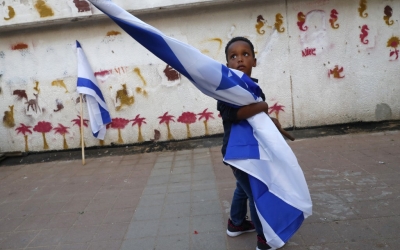
Israel's Supreme Court gave the interior minister nine months to set the criteria of the restrictions and who would be subjected to them.
According to Haaretz, the restrictions, which currently hinder almost 5,000 asylum seekers from working and travelling, could be extended to impact more migrants, not only those released from Holot.
In 2015, the ban was imposed on asylum seekers not to work in Eilat and Tel Aviv, a coastal city with high numbers of African migrants. But it was then expanded to other towns such as Bnei Brak; Petah Tikva; Netanya; Ashdod; and Jerusalem.
The court said that the interior ministry was not "draconian or disproportionate in itself", and asked the ministry to set rules of how asylum seekers could end the geographical restriction and contest its time frame.
In December, an investigative report by Haaretz revealed that the Tel Aviv-Yafo municipality is separating white Israeli students from their black peers in kindergarten and elementary schools.
Hundreds of students from families of asylum seekers and migrants were assigned to schools that were attended only by them and not by any Israeli students.
* Israeli press review is a digest of reports that are not independently verified as accurate by Middle East Eye.
Middle East Eye delivers independent and unrivalled coverage and analysis of the Middle East, North Africa and beyond. To learn more about republishing this content and the associated fees, please fill out this form. More about MEE can be found here.


